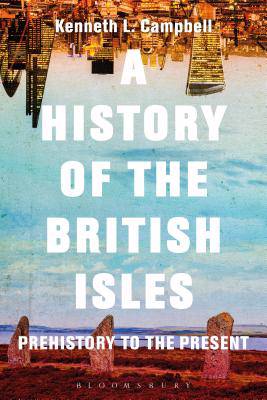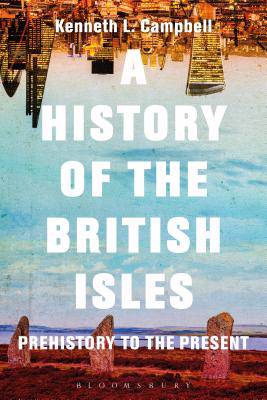
Je cadeautjes zeker op tijd in huis hebben voor de feestdagen? Kom langs in onze winkels en vind het perfecte geschenk!
- Afhalen na 1 uur in een winkel met voorraad
- Gratis thuislevering in België vanaf € 30
- Ruim aanbod met 7 miljoen producten
Je cadeautjes zeker op tijd in huis hebben voor de feestdagen? Kom langs in onze winkels en vind het perfecte geschenk!
- Afhalen na 1 uur in een winkel met voorraad
- Gratis thuislevering in België vanaf € 30
- Ruim aanbod met 7 miljoen producten
Zoeken
€ 67,95
+ 135 punten
Uitvoering
Omschrijving
CHOICE Outstanding Academic Title 2017
A History of the British Isles is a balanced and integrated political, social, cultural and religious history of the British Isles in all its complexity, exploring the constantly evolving dialogue and relationship between the past and the present.
A wide range of topics and questions are addressed for each period and territory discussed, including England's Wars of the Roses of the 15th century and their influence on court politics during the 16th century; Ireland's Rebellion of 1798, the Potato Famine of the 1840s and the Easter Rising of 1916; the two World Wars and the Great Depression; British cultural and social change during the 1960s; and the history and future of the British Isles in the present day.
Kenneth Campbell integrates the histories of England, Ireland, Scotland, and Wales by exploring common themes and drawing on comparative examples, while also demonstrating how those histories are different, making this a genuinely integrated text. Campbell's approach allows readers to appreciate the history of the British Isles not just for its own sake, but for the purposes of understanding our current political divisions, our world and ourselves.
A History of the British Isles is a balanced and integrated political, social, cultural and religious history of the British Isles in all its complexity, exploring the constantly evolving dialogue and relationship between the past and the present.
A wide range of topics and questions are addressed for each period and territory discussed, including England's Wars of the Roses of the 15th century and their influence on court politics during the 16th century; Ireland's Rebellion of 1798, the Potato Famine of the 1840s and the Easter Rising of 1916; the two World Wars and the Great Depression; British cultural and social change during the 1960s; and the history and future of the British Isles in the present day.
Kenneth Campbell integrates the histories of England, Ireland, Scotland, and Wales by exploring common themes and drawing on comparative examples, while also demonstrating how those histories are different, making this a genuinely integrated text. Campbell's approach allows readers to appreciate the history of the British Isles not just for its own sake, but for the purposes of understanding our current political divisions, our world and ourselves.
Specificaties
Betrokkenen
- Auteur(s):
- Uitgeverij:
Inhoud
- Aantal bladzijden:
- 480
- Taal:
- Engels
Eigenschappen
- Productcode (EAN):
- 9781474216685
- Verschijningsdatum:
- 26/01/2017
- Uitvoering:
- Paperback
- Formaat:
- Trade paperback (VS)
- Afmetingen:
- 170 mm x 244 mm
- Gewicht:
- 839 g

Alleen bij Standaard Boekhandel
+ 135 punten op je klantenkaart van Standaard Boekhandel
Beoordelingen
We publiceren alleen reviews die voldoen aan de voorwaarden voor reviews. Bekijk onze voorwaarden voor reviews.









